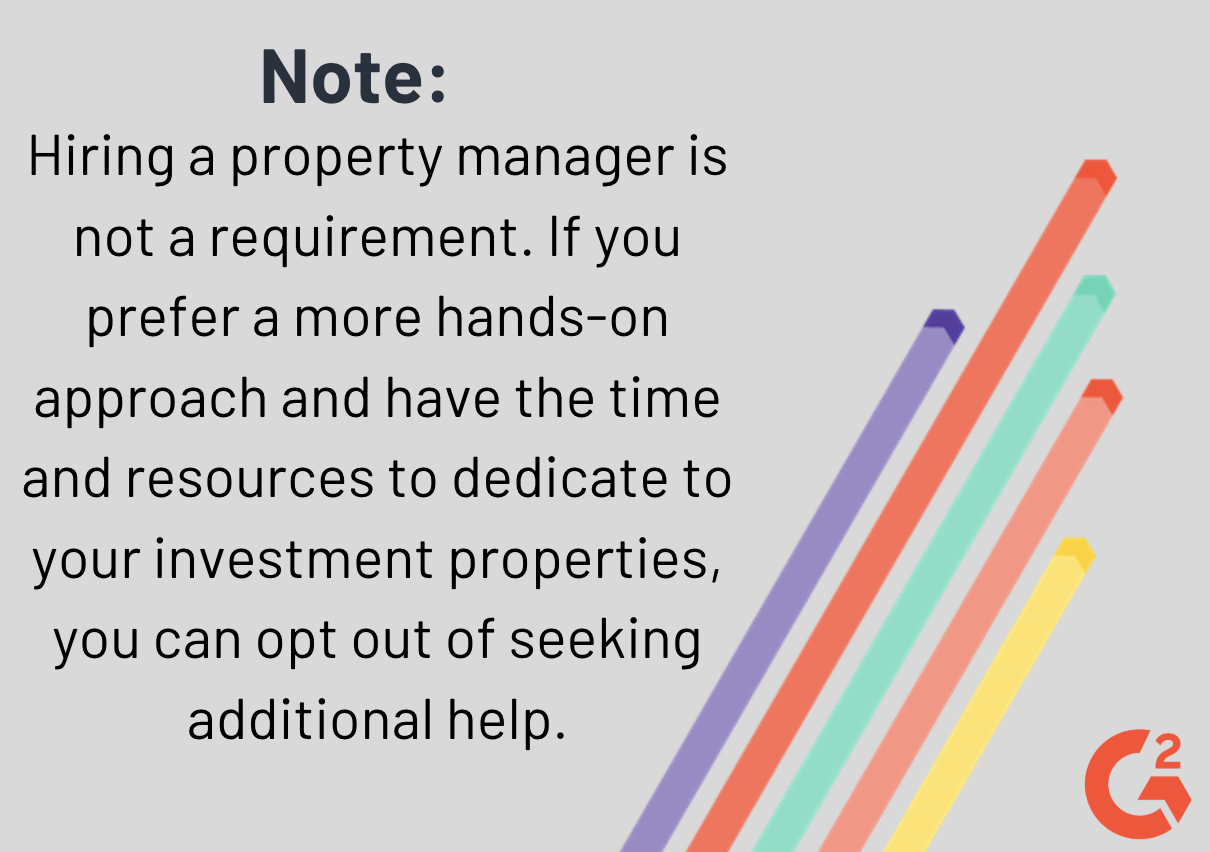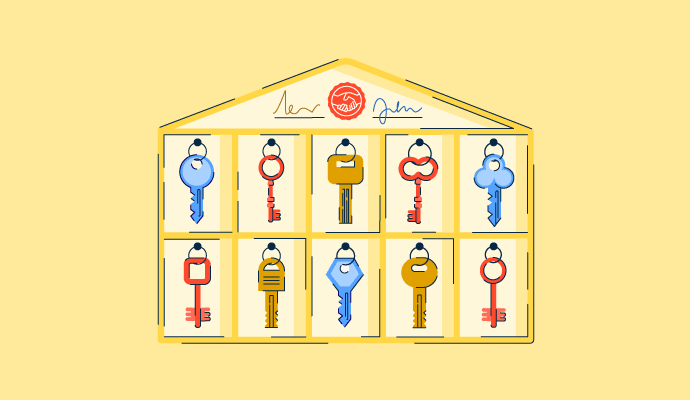Rental properties can be a serious cash cow for real estate investors.
Think about it: you buy a property, rent it out to tenants, and pocket their rent payments as income. Sounds like a great deal, right?
Unfortunately, it’s not that simple. A rental property, no matter the size of the unit or building, is a serious time commitment. You have to stay on top of general maintenance, advertise the listing to find tenants, and stay in touch with the tenants to ensure they’re happy throughout their lease term. For someone with multiple rental properties or a separate full-time job, this can be a really impractical use of your time.
That’s where property management comes in.
What is property management?
Property management is the act of overseeing and handling the business operations of a real estate property, often by a third party. It’s applicable to both residential and commercial real estate.
In this article, we’ll break down everything you need to know about property management, and answer common questions you may have about how it relates to your real estate business.
There is a lot that goes into running a successful, income-generating rental property. Most real estate investors simply don’t have the bandwidth to oversee one or multiple properties at a time. This is why property management companies exist.
When you hire a property manager, it takes some of the heavy lifting off your shoulders. Next, we’ll discuss the scope of their responsibilities more in-depth.

What do property managers do?
Property managers offer a full range of real estate services pertaining to the care and maintenance of one or multiple rental properties. At a high level, their job is to make sure that your investment property is a success. On a day-to-day basis, this could include many different responsibilities such as:
- Advertising listings to attract potential rental applicants
- Administering and enforcing leasing agreements
- Collecting monthly rent payments
- Scheduling maintenance and repairs
- Keeping a record of financial statements and preparing reports for the landowner
- Maintaining positive tenant relations and initiating the eviction process, if necessary
At a glance, you can see just how many tasks property managers must be able to juggle. Additionally, most property management professionals are well-versed in property management software that helps automate a lot of the work they do. Using a property management software solution makes it much easier to manage front office functions and balance other daily operations more efficiently.
As a property owner, you can choose to be as involved with the rental space as you’d like. If you prefer to stay in the loop, you have the option to communicate with your property manager on a regular basis. If you have your hands tied up with other commitments, you can rest assured that your property management team has your investments under control even if you’re not communicating regularly.
Want to learn more about Property Management Software? Explore Property Management products.
What are the benefits of property management?
As a third-party service provider, a property manager aims to serve both you and your tenants’ best interests. It’s their job to keep the tenants happy, while also ensuring that your building is staying in tip-top shape. You won’t have to worry about the day-to-day headaches that arise from having a rental property. Instead, you’ll just be making money.
Should I hire a property manager?
As you know by now, a good property manager can have a major impact on the success of your investment. That being said, it’s not always necessary. To evaluate whether or not you should hire a property manager, there are several factors to take into consideration:
Budget
You purchased the investment property to make a profit, so you’ll need to determine whether or not a property manager fits within your budget. Most property management companies charge for the daily upkeep of the property, which is usually a percentage of the overall collected rent. This will be the main payment you make. Other fees you might encounter are start up fees for when you first sign on with a property management company, or leasing fees for when the property manager has to find new tenants for the space.
Commercial building software can help integrate financial and property management information, organizing your entire portfolio into a streamlined system.
Time
Ask yourself, “do I realistically have enough time to make this investment property successful?” Keep in mind that property management isn’t a typical 9-to-5 gig. You’ll have to respond to tenant requests outside of regular work hours and on weekends.
Location
It’s a lot easier to go without a property manager if you live near your investment property. If something goes wrong or a tenant has an urgent request, you can drop by in a moment’s notice. However, if you’re based somewhere far away, it can be difficult to keep tabs on your tenants and their needs.
Over to you
At the end of the day, it will ultimately be up to you to weigh in on what’s most important to you as a property owner and make the decision that fits your lifestyle and needs. However, if you choose to hire a property manager, you now know the positive impact it can have on your investment.

Izabelle Hundrev
Izabelle is a Partner Marketing Specialist at InStride and a former content specialist at G2. Outside of work, she is passionate about all things pop culture, food, and travel. (she/her/hers)
